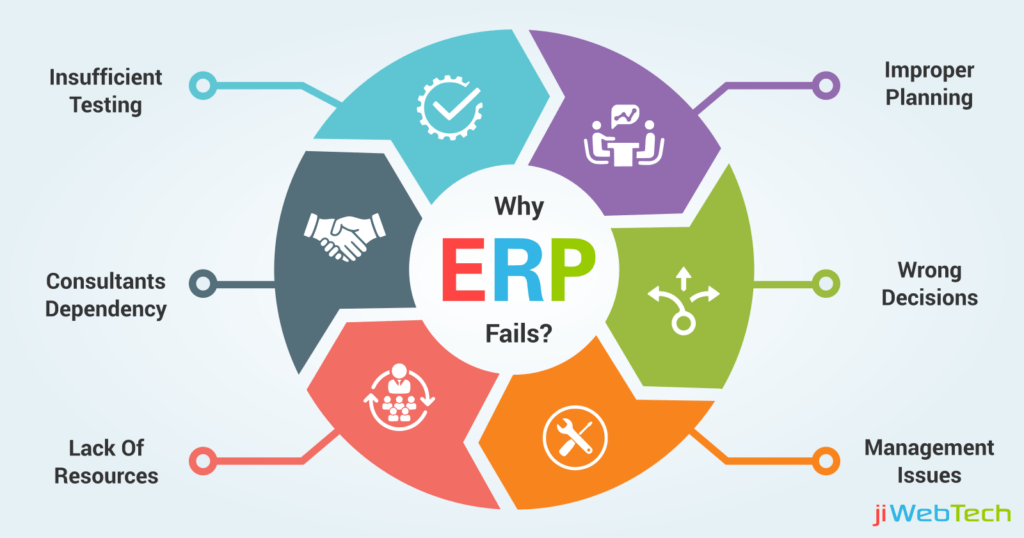Implementing an Enterprise Resource Planning (ERP) system is a significant undertaking for any organization. While the promise of streamlined processes and improved efficiency is appealing, the road to successful ERP implementation is often fraught with challenges. In this article, we’ll explore some common pitfalls encountered during ERP implementation and discuss strategies for overcoming them.
- Lack of Proper Planning: One of the most common pitfalls in ERP implementation is a lack of proper planning. Rushing into implementation without a clear understanding of business needs, goals, and processes can lead to misalignment and inefficiencies. To overcome this, it’s essential to conduct a comprehensive assessment of your organization’s requirements and develop a detailed implementation plan.
- Insufficient Training and User Adoption: Another challenge in ERP implementation is ensuring adequate training and user adoption. Even the most sophisticated ERP system will fail to deliver results if users are not properly trained or resistant to change. To address this, invest in comprehensive training programs and engage employees early in the process to build buy-in and enthusiasm for the new system.
- Poor Data Management and Migration: Data management and migration are critical components of ERP implementation, yet they are often overlooked or underestimated. Poor data quality or incomplete migration can lead to errors and disruptions in business operations. To mitigate this risk, develop a robust data migration strategy, cleanse and validate data before migration, and conduct thorough testing to ensure data integrity post-implementation.
- Scope Creep and Overcustomization: Scope creep and overcustomization are common pitfalls that can derail ERP projects. While it’s tempting to tailor the system to meet every unique requirement, excessive customization can lead to complexity, cost overruns, and delays. To avoid this, focus on aligning ERP functionalities with core business processes and prioritize customization only where necessary to address specific business needs.
- Inadequate Vendor Support: Lastly, inadequate vendor support can hinder ERP implementation efforts. Choosing the right ERP vendor is crucial, but ongoing support and collaboration are equally important for success. Ensure clear communication channels with the vendor, establish service level agreements (SLAs), and leverage vendor expertise and resources throughout the implementation process.
Conclusion: ERP implementation is a complex endeavor, but with careful planning, proactive management, and strategic execution, organizations can overcome common pitfalls and realize the full benefits of their ERP systems. By addressing challenges such as lack of planning, insufficient training, data management issues, scope creep, and vendor support, businesses can streamline operations, improve efficiency, and drive growth.
About Your Websites: For expert guidance and tailored ERP solutions to overcome implementation challenges, visit iskycreative.com and isky.ae. Our team specializes in helping organizations navigate the complexities of ERP implementation and achieve success in their digital transformation journeys.
